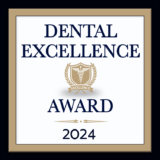
Some Dental Infections Might Require Antibiotics
Believe it or not, your mouth microbiome is filled with both healthy and harmful bacteria. The healthy microbes assist in keeping the cavity and disease-causing ones in check! Sometimes the balance between these bacteria become altered due to:
- Dietary changes.
- Dental procedures.
- An insufficient oral hygiene routine.
- Certain types of health concerns.
When the balance is disrupted, in certain cases, the harmful bacteria might end up taking over your mouth. This can lead to a multitude of issues including cavities, gum disease (periodontal disease), tooth loss, and, the ever embarrassing, bad breath! So, what should you do to keep the peace in your mouth if you have a current infection or are seeking to prevent one?
Maintaining Oral Harmony: Understanding Symptoms and Treatment
Keeping the peace within your oral microbiome always starts with a strong oral hygiene regimen, healthy diet, changing your toothbrush every 3 to 4 months, exercise, and rest! Despite all of these rigorous efforts to stay balanced, sometimes our bacteria becomes imbalanced. This lack of harmony may arise just from everyday life or from a dental procedure as we discussed. Either way, if your mouth is disturbed enough, your hygienist might suggest antibiotics for dental work as an optimal treatment solution. Some common symptoms of an gum infection and other oral conditions may include the following:
- Bleeding or sore gums.
- Bad breath that reoccurs.
- Discoloration of the gums.
- Pain in your teeth, jaw, inner ear, or gums.
- Sores in the mouth, gums, or lips.
- Swelling in the mouth, gums, jaw or even the lymph nodes, head, and neck.
- Taste might be peculiar.
- Tooth sensitivity; especially to hot and cold substances.
- Miscellaneous: Fatigue, chills, and fever.
Treating infections during the early stages is imperative as, most of the time, antibiotic medicine will limit the growth of or completely eradicate the bacteria that causes your pain, swelling, sores, sensitivity, and bleeding. If left untreated, these symptoms can strengthen, leading to unnecessary pain and discomfort.
Some dental procedures are packaged with a high risk of infection after completion. In these cases, your dental professional will provide you with the medicine since some of these procedures cause sores and bleeding within your mouth. Surprisingly, on occasion, antibiotics are used as a preventative medicine! Read on!
Antibiotics for Dental Work Can Prevent Infection
We have already determined that antibiotics are used for typical infections and for certain dental procedures that may expose patients to a higher risk of infection. In some cases, this medicine is used before dental procedures to prevent infections that can sometimes become life threatening. Also, if a patient’s profile denotes a history of past infections from certain procedures, your dental professional may decide to take the preventative route. So what do preventative antibiotics actually do?
Preventative antibiotics, also called prophylactic antibiotics, can help prevent infections that can be life threatening. They are also well known for treating chronic infections and those that are recurrent. They decrease the amount of bacteria in your mouth before a procedure so that when you heal, you are not likely to get an infection. Remember, each individual is unique and comes with a different dental history. The decisions for your mouth will be determined between you and your dentist.
Antibiotics Limit Infection Risks Due to Health Conditions
If you are already coping with underlying health conditions, you may be directed to using both preventative antibiotics and antibiotics after your procedure. For example, it has been observed that there is excessive movement of bacteria from the mouth into the bloodstream during certain dental procedures. As a result, patients with heart conditions tend to be at a higher risk of developing infection. This is because the bacteria that travel into the bloodstream could easily migrate to the heart region causing heart concerns, including heart attacks.
There are other health conditions that may cause apprehension during dental procedures such as diabetes, endocrine disorders, bleeding disorders, high blood pressure, obesity, and more. This is where complete honesty comes into play. Please make sure you are honest with your dentist about all of your medical conditions. This will lead to a more successful experience for both parties. Your dentist team wants you to feel comfortable, safe, confident, and eventually healed! Honesty is the best policy!
Reach Out for Personalized Dental Care
If you are currently experiencing an infection or are apprehensive about an upcoming procedure, please reach out to Shorewood Family Dental Care with your questions! We are here to find the best solutions for your mouth including the, sometimes, necessary medicine we call antibiotics. If you are honest about your medical history, we will find the best options for you. Please don’t hesitate to start dialing now: 815-725-5991. Your concerns are our priority!




